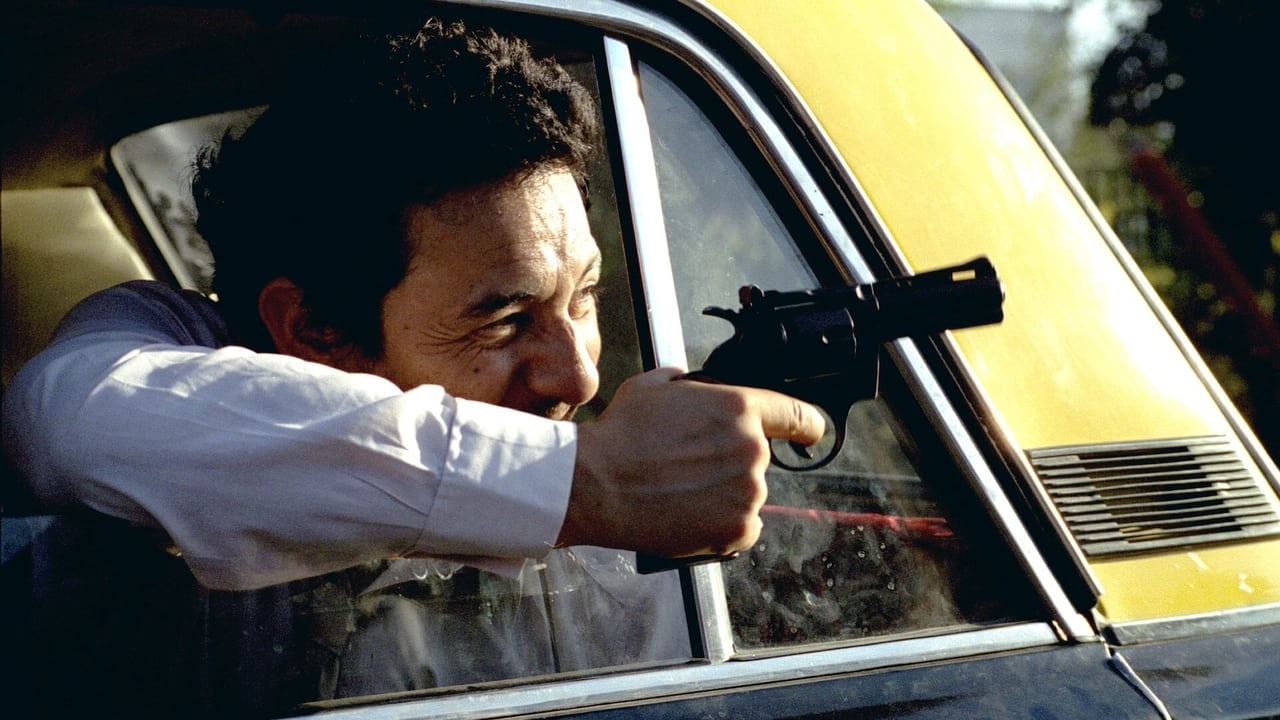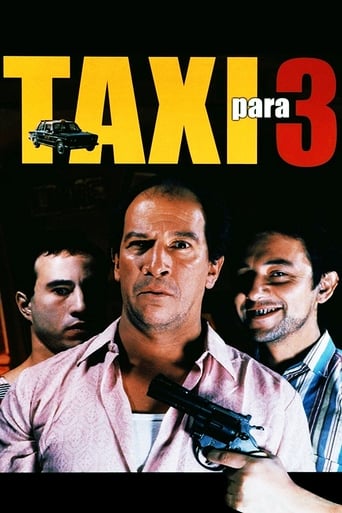Steineded
How sad is this?
JinRoz
For all the hype it got I was expecting a lot more!
Dorathen
Better Late Then Never
Micah Lloyd
Excellent characters with emotional depth. My wife, daughter and granddaughter all enjoyed it...and me, too! Very good movie! You won't be disappointed.
Boba_Fett1138
This big Chilean box office success is a great pleasant light movie with some serious undertones in it.This movie shows that there are some talented directors in South America, that can make some great movies, once they're giving the chance- and right tools. Every now and then a movie like this one goes overseas, to be seen by the rest of the world. This is one of those movies and it truly deserves to be seen by the world.The budget is obviously low but the filmmakers did their best with the resources they had. It gives the movie a good and professional look and makes the quality of the movie quite high, despite the budget. It once more proofs that all you truly need to make a great movie with, is creative talent.The movie begins quite simple with a simple premise; A poor taxi driver with a big family to support is given a choice from 2 small time crooks: drive them around while they rob, or get locked up in the trunk. It probably sounds like this is the Chilean "Collateral" but it obviously is not. This movie chooses a light and comedy like approach, which makes the movie pleasant to watch. As the movie progresses the movie however also gets some more serious undertones about family values, everyday struggles and other dramatic situations. It makes the movie more than just a fun, light pleasant movie to watch but also one with a great underlying story, that is well written- and used in the movie.But above all this movie mainly remains a pleasant one. Despite the dramatic and serious undertones, the movie always remains a comedy. It makes the movie pleasant but at the same time not at the costs of the overall effectiveness of the story.The acting in this movie feels very natural and it makes you care about the characters and make them all realistic ones as well.In my experience, an excellent movie to get introduced for the first time to Chilean cinema.8/10http://bobafett1138.blogspot.com/
jotix100
A taxi driver's worst nightmare is being assaulted by a passenger. Imagine Ulises' surprise as he is attacked by two low lives in a seedy part of town when his car stops running. Chavelo and Coto, are two desperate men who make a living mugging and committing petty crimes in Santiago. The pair, on their way to perform a few robberies give Ulises and alternative, either drive, or get in the trunk of the car. He decides to drive them.Chavelo and Coto begin their crime spree, as Ulises drives them all over town. They even offer Ulises a cut in the money they have taken from their illegal activities, but he refuses. Ulises, who lives in poverty with his wife and grown up children, is basically a honest man. All he wants is to finish paying his car in order to work; he also make an honest living to support his family. The two robbers suddenly realize they can get to Ulises when they offer him money. A transformed Ulises suddenly feels tempted to go along with the Chavelo and Coto, but he makes a serious mistake, one that will bring him to the attention of the police that are investigating the robberies: he brags about what he went through to his colleagues, who will tell the police. Padilla, the police detective knows Ulises is involved, even if he is an unwilling party. The second mistake was paying another installment on the taxi.This Chilean film, one of the most popular movies in recent years, is a cautionary tale for would be robbers, in that no matter how one looks at it, crime is wrong and it will be the downfall of anyone who thinks he can get away with his evil doings forever. Orlando Lubbert, the writer and director of "Taxi para 3" shows a great affinity for the material. His message is that Ulises can't get away covering for the Chavelo and Coto, knowing what they are doing harm to him and his family.Alejandro Trejo, whose first film this is, shows a naturalness that perhaps a trained professional actor wouldn't project. He is the whole reason for watching the movie. Daniel Jimenez, who plays Chavelo, has an unpleasant voice that suits his character. Fernando Gomez Rovira is Coto, the simple minded petty thief being coached by Chavelo. Cristian Quezada has a couple of good moments as the inspector who figures out who is who in the story.Since the film language uses Chilean street slang, we saw the English subtitled version because even though we are fluent in the language, for all practical purposes the characters were speaking Chinese. Orlando Lubbert shows great talent and an eye for bringing to life the people in his movie.
peteito
As a foreigner studying new Chilean film it was this film which impressed me more than any. The low production costs, gloomily atmospheric cinematography and sparse mise-en-scene submerge the viewer in Santiago's poorer nieghbourhoods from the opening scene until the last. The film explores the breakdown of the family unit, the lure of crime for those poverty stricken sectors of society documented, but ultimately is a triumph of morality which restores the viewer's faith in the Chilean person.This film shot Alejandro Trejo to fame as Taxista Ulises, and his relationships with his family and with the petty criminals who use him as their chauffeur underpin the narrative. One can see why a family man becomes tempted by the get rich quick option of small robberies when his family live in such poverty (his son asks for coca-cola, and is told thats too expensive, theres only tap-water. This family cannot buy into the capitalist dream and are swept away. Ulises, like many poorer citizens, turns to crime. The social question raised by Lubbert, a man exiled during the Military regime, is 'Perhaps wealth should be distributed more equally, then men like Ulises would not so easily become criminals.'). Also, one can see why Ulises is driven to infidelity, and the strain of poverty, and the suspicion of his crime, begin to show in his relationship with his wife.This film exudes brooding social decline, even thirteen years after the fall of the Military Regime. The dry, sun beaten expanses of Santiago's poorer Western barrios are made undeniabley Chilean by imagery of the Plaza de Armas, Churrascos, and dialogues bursting with Chilean slang. The moody soundtrack of Vasconcelos adds a melanchony feel of despair to the three main character's situations. This is a Chilean film, documenting social problems, and doing so without indulging in hyperbolic comedy, as the two most successful films in Chilean history, Sexo Con Amor and El Chacotero Sentimental (at least two thirds), did so memorably.Lubbert has returned to Chile in the new climate of social freedom, looked around him, and seen there remain serious social problems. The tension is always there, even if at times lighthearted, but the overriding theme is that of social criticism, and Lubbert has realized that he doesn't need to make people have sex on top of washing machines (a la Sexo Con Amor) to make Chileans go and see a Chilean film.
juancarlosrodriguezpavez
This film was the most popular in Chile in the 2001, but this film is not the best. It is a travel for the Santiago Underground, where survivor is the life motive every day. A intimate see to the problems of a taxi driver, father and husband, where the money is the matter and the moral not pay the checks

